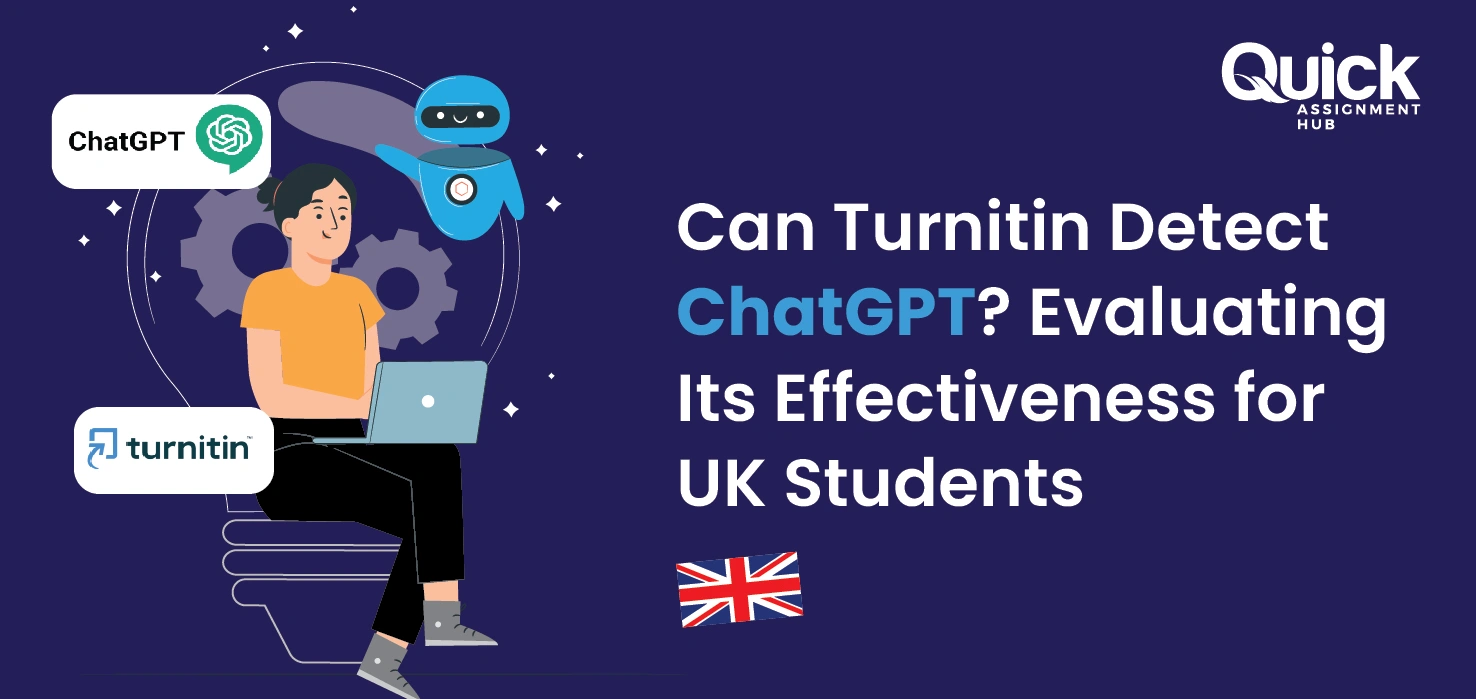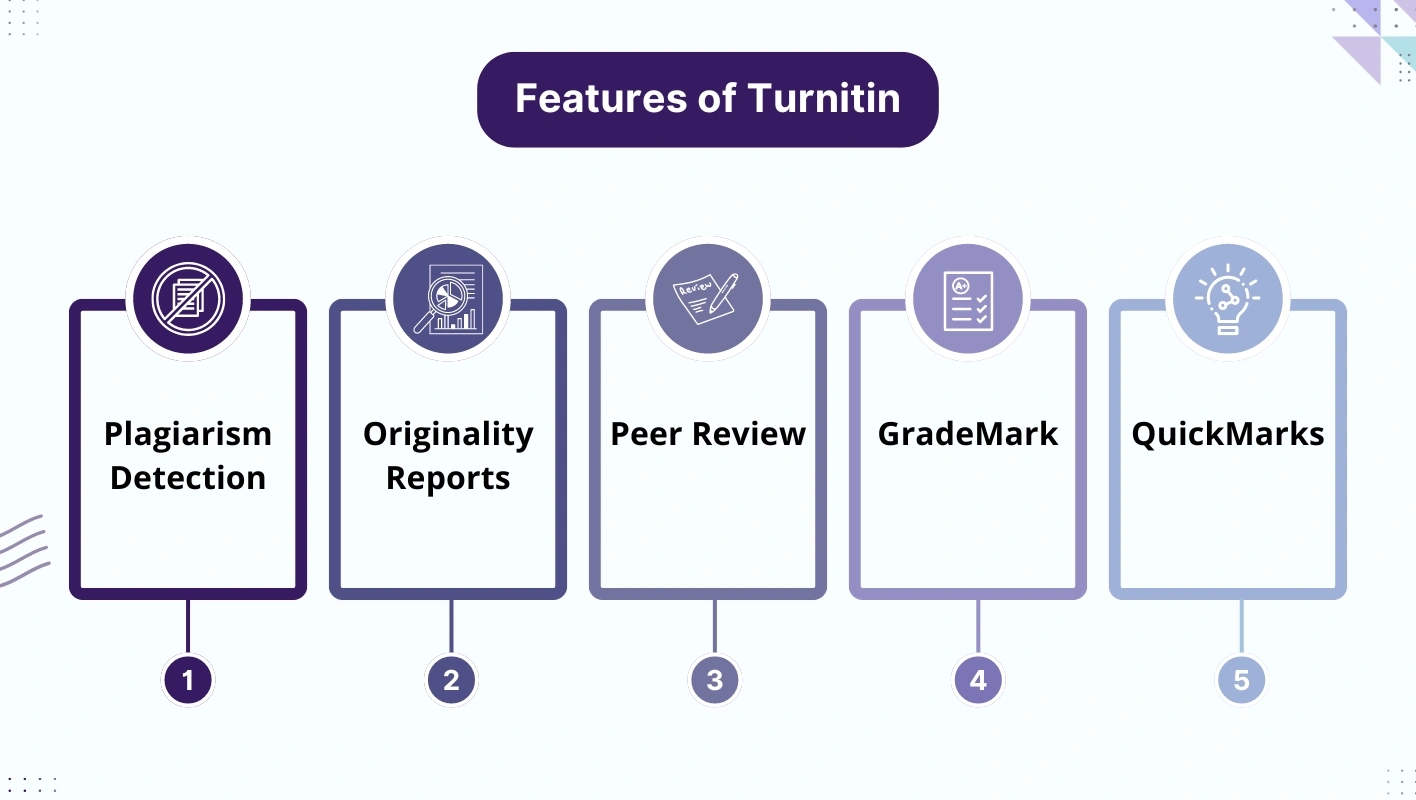
In the current learning environment, the adoption of AI tools such as ChatGPT calls for an important discussion on academic honesty. During the specified use of Turnitin, the most popular AI detection tool, students and teachers are wondering how such an application is capable of recognizing AI material.
The students of the UK need to understand whether Turnitin can identify the work of ChatGPT or not in the modern educational landscape. This blog focuses on how well Turnitin and such systems can detect AI-generated papers and what it means for academic integrity in the age of technology.
ChatGPT is a language model that is designed to predict human-like text based on the input and is trained on a large amount of text so it can provide well-written answers that are coupled with the question.
Students use ChatGPT for various reasons. It also includes asking for prompt explanations, writing essays or assignments, and more. Its application in an academic environment has one significant drawback, i.e. originality and plagiarism.
Convenience: It is real-time in nature, students can get quick answers or write an essay in a shorter time than writing the script.
Accessibility: One key advantage of a ChatGPT is that it can always be online, so students can get help whenever they have a question.
Improvement of writing skills: Students also apply ChatGPT in developing content ideas, their organisation, as well as vocabulary for improved writing skills.
But, the regular use of such tools raises the question of the distinction between good academic help and duplicity. It is where Turnitin comes into play.
Turnitin is an online tool which examines work and recognizes from where parts of it have been copied. It aims to quantify the level of novelty of the produced work. Some academic institutions employ it to determine if the students are being genuine when doing their papers. Turnitin assists both the professors and students since the students get a chance to revise their work before submitting it. Moreover, it also reduces cases of being accused of duplicity.
Here is the list of the amazing features of Turnitin

Plagiarism Detection: Checks papers against a large database of papers, websites and publications to identify any signs of plagiarism.
Originality Reports: Offers an analysis of the extent of copied content and highlights the sources that raised suspicion.
Peer Review: Enables students to go through each other’s work and provide feedback, leading to teamwork.
GradeMark: Provides teachers the possibility to leave feedback, comments, and grade assignments within the context of the program.
QuickMarks: Allows instructors to enter pre-specified comments or generate their comments, making the assessment process faster.
Your First Order
Get 20% OFF!
When Turnitin produces an originality report, it flags certain sections that refer to other works. Since such content aligns with data from identified databases or has already been published, Turnitin will highlight these passages.
New Pass will utilise advanced mathematical formulas to determine the level of originality in the content. These algorithms can show content that is not personal or specific information, which is symptomatic of many AI writings.
UK students must understand the ethical implications of using such a tool as ChatGPT, given that Turnitin is getting sharper at detecting AI-generated content:
Asking ChatGPT to create or heavily contribute to content for assignments raises questions about what constitutes cheating and what is acceptable help. Students should make sure that the work delivered belongs to them individually.
If a student uses AI tools to help in research or composing, then the usage should be declared. It is always important to admit to these features and show the truth when using AI to complete assignments or participate in discussions.
Students must author their thoughts and perspectives, and AI resources can assist in generating and conceptualizing ideas. The overuse of AI for content generation diminishes critical thinking and analytical work that should be conducted.
ChatGPT is now becoming the best buddy for UK students and offering amazing benefits. It helps them to improve the quality of their assignments. Well, to get the best of the tool it is important to use it effectively and also cover AI detection. It helps you to save you from your assignments getting rejected:
Make sure not to directly copy it from the ChatGPT and paste into your document. You can take guidance from it and build your own unique work.
ChatGPT makes things easy for the students and it also helps them to complete their work timely. If you are using any text from ChatGPT, ensure to rewrite the content. If you are having a lack of time try to paraphrase the content. Well, it ensures to reduce the risk of AI detection and gives you originality work.
Students should consider the ChatGPT as a research tool. Ensure always to properly cite the information gathered from it. It helps your teachers to consider the ChatGPT as research work.
Every university has its own rules related to using AI tools for complete assignments. So, before using make sure to cross check the guidelines and then do your work.
Summing up, the detection of ChatGPT-generated content by Turnitin proves both the efficiency of the detection tools of the program and the need to write unique papers. Turnitin is capable of detecting AI-written text to some extent, but it is not perfect.
Thus, the best option for UK students is to stick to creating unique pieces while using AI technologies as enablers rather than reliance markers. AI should be seen as an assistant in the learning process, not as a way to avoid hard work.
© Copyright Quick Assignment Hub All rights reserved.